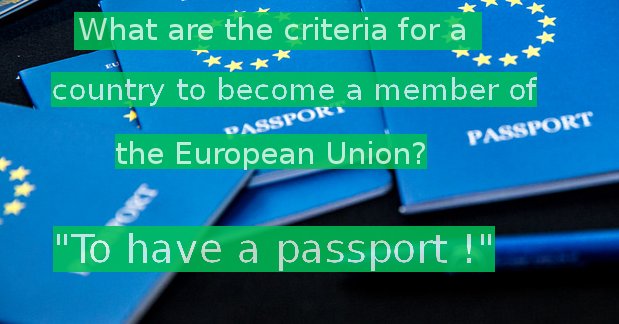Imagine how citizenship engagement and participation would look like in the ideal European governmental structure. Citizens would equally engage in political debate, make their voice heard and shape the agenda of their political representatives. Of course, everyone would have at least a basic understanding of how decisions are taken at the European level and affect their everyday life. And there wouldn’t be that impression that Europe is ruled by a group of elitist and remote bureaucrats which cannot be held accountable. Wouldn’t that make it much easier to identify with Europe and create a common pan-European identity?
Unfortunately, the reality is far from it. At the last European election, only 42% of EU citizens voted. Only 28% of the 18-24 years old participated in this vote. These numbers are truly upsetting and are a good indicator that young people are not sufficiently aware of their political responsibilities as European citizens. This is confirmed by the Eurobarometer 2017 which came to the result that only 44% of European think that their voice counts in the EU and 67% of citizens would like to know more about these rights. In sum, the current situation of European citizenship engagement is rather desolate and we think that an important reason for this is that not enough has been done to develop a common European citizenship education.
Who cares about citizenship education?
These numbers are indeed hardly surprising when you look at how Europe is taught at school in the EU. A study on ’Learning Europe at School’ carried out by the European Commission five years ago revealed that there is much to improve in the way how the European Union is covered in the national curricula of Member States. Even though in all countries, students are expected to learn about the EU, the content of EU issues was found to be very fragmented in most countries. The study found little consistency and complimentary in what is taught at different levels in different subjects. Moreover, the functioning of EU institutions and the decision making process was found to be neglected in comparison to other topics.
The European Union has done important things to make our education more European, for instance, by promoting language learning, facilitating the exchange of material and best practices and funding student exchanges through the Erasmus+ programme. The European dimension in education is on the agenda of the Member States since the late 80s and has repeatedly been highlighted by the EU institutions in the past. But education remains mainly a competence of the Member States who decide about the content of teaching (see Article 165 TFEU). This explains why there are still great differences among countries in what aspects of the European Union are covered in schools.
JEF cares about non-formal European citizenship education
For us, as JEFers, the current state of European citizenship education is definitely not acceptable. The Federal Committee in Skopje has recently adopted a resolution to outline our understanding of European citizenship education and call for action. We advocate a broad understanding of European citizenship education which is not limited to obtaining knowledge about the institutions and processes of civic life. European citizenship aims at empowering people, encouraging participation and engagement not only in institutional processes (such as elections, petitions, etc.) but also civil society. In particular, we emphasize the European dimension of citizenship education which is too often neglected in the national curricula. European citizenship education can make an essential contribution to foster a genuine European identity and a sense of belonging to a European community.
JEF has already done a lot in the field of citizenship education. In the ’Europe at School’ programme, for instance, JEFers go to schools and talk to young people about Europe, applying non-formal methods. Other examples are European Parliament simulations, student exchanges and street actions. These activities do not aim at replacing regular school teaching and a comprehensive curriculum on European matters. But they are an enriching complement, as they can make Europe more tangible and can be a strong motivation to to become active European citizens. In fact, being in JEF, participating in our debates, contributing to resolutions and taking part in our activities is already a form of European citizenship education. Being member of JEF teaches you how to actively take part in civic and civil life.
Non-formal education methods are particularly important for our work. They deviate from the mainstream lecture-based approach, where students are mostly passive, receptive to information and solicited in a one-sided way. We want to make young people engage with Europe in an active and inclusive way. This is why JEFers have created games, quizes, activities or simulations in order for Europe not to be taught only in a one-sided manner but to make young people feel engaged and appeal to the various talents they have. You do not learn only by reading, writing and memorising things, but learning can happen through all the cognitive channels we have – seeing, sensing, hearing, etc. - or even simulating a situation. For instance, taking up the role of a MEP is an engaging way to to get a more concrete understanding of how the European Parliament functions.
JEF as frontrunners in European citizenship education
We believe that civil society and in particular youth organisations play a crucial role in European citizenship education. First, civil society organisations are not constrained by national curricula and can promote a genuinely European dimension of citizenship education. They can rely on an informal pan-European network to develop a common understanding of citizenship education. Moreover, they have a bottom up approach: they are close to the people and can make them directly engage. Youth organisation, in particular, can create a close link to young people. Young people are the most important target of European citizenship education because they have the biggest capacity of learning something new and are the ones who will shape our future.
JEF should become a frontrunner in European citizenship education. We have a privileged position regarding European citizenship education because we have a very reliable pan-European network of young people engaged in European politics and many years of experience in European citizenship education. However, we can still sharpen our international profile as an organisation which has the necessary expertise to communicate Europe and make people engage with it in a reflected way. That is why JEF Europe encourages local sections to carry out Europe at school activities in all JEF sections and actively supports them through trainings and advice.
Finally, we need to go beyond JEF. We need to act together with other civil society organisations. Many other organisations are active in the field of non-formal education and JEF is already taking part in an exchange of best practices. Besides this, JEF will develop its programme Europe at school and promote it among other civil society organisations who are not active in the field yet. And, of course, we need to continue demanding governments and politicians at EU, national and local level to continue developing a common European citizenship education.


Follow the comments: |
|
